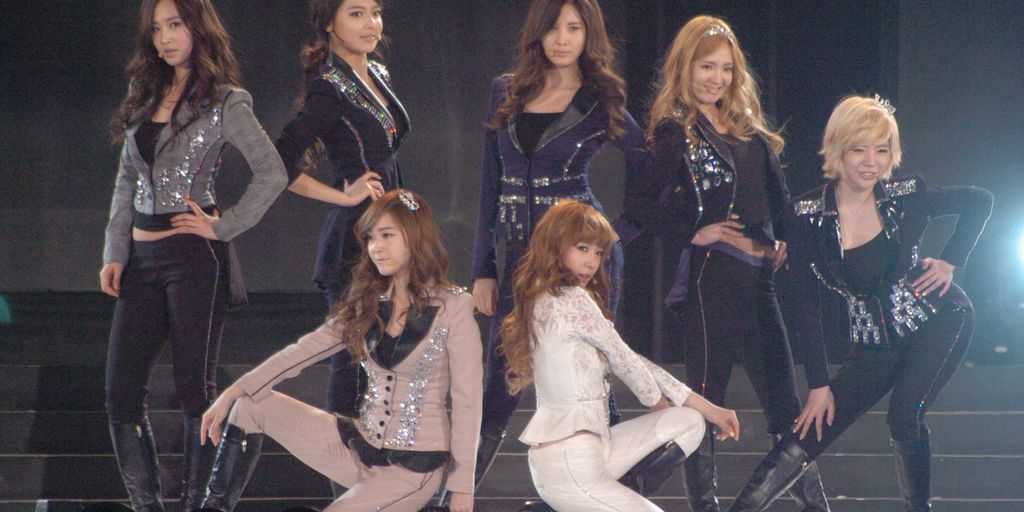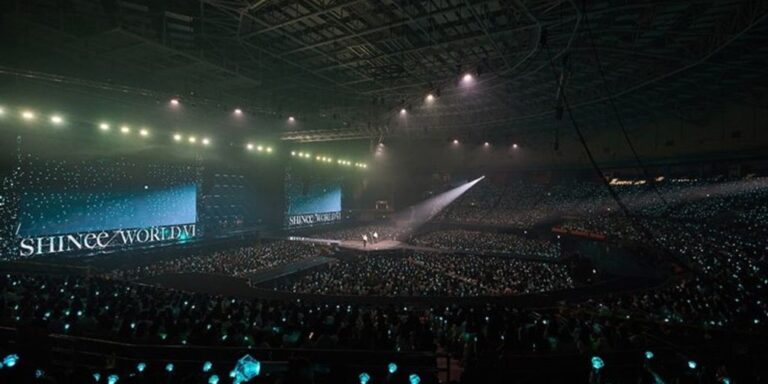
The Korean entertainment industry, encompassing both K-Drama and K-Pop, has evolved into a significant cultural force on a global scale. This article explores the intricate connections and the expansive influence of Korean entertainment, from its historical roots to its current status as a major player in the global market. We’ll delve into the symbiotic relationship between K-Drama and K-Pop, their mutual influence, and the broader implications for culture and commerce.
Key Takeaways
- The rise of K-Drama and K-Pop has transformed South Korea into a global entertainment powerhouse, influencing media and culture worldwide.
- K-Drama and K-Pop share thematic and stylistic elements, and their crossover appeal has led to increased global fan engagement.
- Digital media platforms have played a crucial role in the international spread of Korean entertainment, making it accessible worldwide.
- The Korean Wave, or Hallyu, has significant economic implications, including boosting tourism and increasing merchandise sales.
- Cultural diplomacy through K-Drama and K-Pop promotes South Korea’s soft power, enhancing its image and influence globally.
The Evolution of K-Drama and Its Global Influence

Rise of Korean TV Dramas
Korean TV dramas started becoming very popular in the late 1990s. They were cheaper than shows from Japan and Hong Kong, which helped them spread to other countries. People in places like China, Taiwan, and Japan began watching these dramas because they could relate to the stories and characters.
Localization and Cultural Adaptation
As Korean dramas became popular in different countries, they were changed a bit to fit the local cultures. This process is called localization. It helped more people enjoy the shows because they could see parts of their own culture in the stories.
Impact on International Media
Korean dramas have had a big impact on TV shows and movies around the world. Many countries have started to make their own versions of popular Korean dramas. This shows how much people from different places love these stories.
K-Pop: A Global Phenomenon

Rise of Korean Pop Music
K-Pop, or Korean Pop Music, has become a huge hit all around the world. It started to get really popular in the early 2000s. K-Pop is known for its catchy tunes and cool dance moves. Many people, not just in Korea but all over, enjoy listening to it.
Strategic Marketing and Global Reach
K-Pop isn’t just about good music; it’s also about smart marketing. Companies use social media, cool videos, and famous stars to make K-Pop famous everywhere. This helps K-Pop reach fans in many different countries.
Cultural and Economic Impact
K-Pop has a big effect on culture and money. It helps create jobs and makes money through concerts, merchandise, and music sales. Also, K-Pop stars influence fashion and trends, making them very important in culture.
Intersections of K-Drama and K-Pop

Shared Themes and Styles
K-Drama and K-Pop share many common themes and styles. Both forms of entertainment often focus on love, friendship, and the challenges of life. This makes it easy for fans to enjoy both K-Drama and K-Pop because they can relate to the stories and the music.
Cross-Industry Collaborations
Many K-Pop artists have acted in K-Dramas, and some K-Drama stars have released music albums. This mixing of talents helps to create unique shows and songs that fans really love. It’s like getting the best of both worlds!
Fanbase Overlap and Interaction
Fans of K-Drama often become fans of K-Pop, and vice versa. This overlap creates a big community where fans can share their love for Korean entertainment. They talk about their favorite shows and songs online and meet up at concerts and fan events.
Bold connections between K-Drama and K-Pop help shape Korea’s entertainment landscape.
The Role of Digital Media in Spreading Korean Culture

Influence of Social Media
Social media platforms like Twitter, Instagram, and YouTube have played a huge role in spreading Korean culture around the world. Fans can share their favorite K-Drama scenes or K-Pop songs in just a few clicks, reaching millions of people in no time!
Streaming Services and Accessibility
Streaming services have made it super easy to watch K-Dramas and listen to K-Pop from anywhere. Now, anyone with internet can enjoy these shows and music, which helps more people learn about Korean culture.
Fan Engagement and Content Creation
Fans are not just watching; they’re also creating! Many fans make their own videos, write stories, and even draw pictures inspired by K-Drama and K-Pop. This fan content helps spread Korean culture even more and brings fans together from all over the world.
Economic Implications of the Korean Wave

Revenue Generation from Entertainment
The Korean Wave, or Hallyu, has significantly boosted Korea’s economy through entertainment. Music exports grew from USD 20 million in 2008 to USD 230 million in 2012, showing how popular K-pop has become worldwide. This growth isn’t just in music; it includes TV shows, movies, and online content that people from all over the world enjoy.
Tourism Boost Linked to Pop Culture
Many people visit South Korea because they love K-pop and K-dramas. This has helped increase the number of tourists, which is great for many businesses in Korea. Hotels, restaurants, and shops have seen more customers who come to experience the culture they see in dramas and music videos.
Merchandising and Brand Endorsements
K-pop stars and actors from K-dramas often promote products and brands. This helps companies sell more products not just in Korea, but all over the world. Fans often buy the same things their favorite stars use or wear, which is good for business.
The Korean Wave has not only spread Korean culture across the globe but also brought significant economic benefits to the country.
Cultural Diplomacy and National Branding

K-Pop and K-Drama as Soft Power
K-Pop and K-Drama are not just fun to watch and listen to; they are also a way for Korea to share its culture with the world. This is called soft power. By showing off its cool music and shows, Korea can make friends all over the globe.
Government Initiatives and Support
The Korean government helps a lot by supporting music and TV shows. They do this because it makes people from other countries interested in Korea. This helps Korea become more famous and loved around the world.
Cultural Exchange and International Relations
When people in other countries enjoy Korean music and TV shows, they learn more about Korea. This can lead to people from different countries becoming friends and understanding each other better. It’s like building bridges between countries through fun and entertainment.
Challenges and Criticisms of the Korean Entertainment Industry

Issues of Representation and Diversity
The Korean entertainment industry often faces criticism for not having enough variety in who gets to be on TV or in music. People from different backgrounds or looks sometimes don’t get as many chances. This is a big topic because everyone should have the chance to be a star if they want to!
Work Conditions and Mental Health
Many artists in Korea work super hard and have very busy schedules. This can make them very tired and stressed. It’s important for stars to have time to rest and be happy. Sometimes, the rules they have to follow are very strict, which can make it tough for them to enjoy their work.
Media Scandals and Public Image
Sometimes, there are big stories in the news about mistakes that stars or companies in Korea make. These stories can make people very upset and can change how people think about these stars. It’s important for everyone, including famous people, to be careful about what they do.
Future Trends in Korean Entertainment

Technological Innovations
Korean entertainment is always looking for new ways to wow audiences. Expect more virtual reality experiences and smart tech in shows and concerts. This will make watching dramas and listening to K-pop even more exciting!
Expanding Global Markets
The love for K-drama and K-Pop is spreading all over the world. More countries are getting interested, which means more fans to enjoy Korean shows and music.
Sustainability and Ethical Practices
Korean entertainment companies are working harder to be good to the planet and to treat people fairly. They’re thinking about how to make less trash and be nicer to the artists.
Conclusion
In the realm of global entertainment, the Korean Wave, or Hallyu, has carved a unique and influential niche, seamlessly blending K-Drama and K-Pop into a cultural phenomenon that transcends borders. This article has explored the intricate connections between these two facets of Korean entertainment, highlighting their mutual influence and the synergistic effects on their global appeal. From the strategic marketing to the cultural hybridity that these genres foster, it is clear that the success of one often propels the popularity of the other, creating a dynamic cycle of growth and innovation. As Korean entertainment continues to evolve and adapt, it remains a significant player on the world stage, offering a rich tapestry of media that resonates with diverse audiences worldwide. The ongoing globalization of K-Drama and K-Pop not only enriches Korea’s cultural export but also strengthens its position as a powerhouse in the international entertainment industry.
Frequently Asked Questions
What is the Korean Wave or Hallyu?
The Korean Wave, or Hallyu, refers to the global popularity of South Korea’s cultural economy exporting pop culture, entertainment, music, TV dramas and movies.
How has K-Drama influenced global television?
K-Dramas have gained international acclaim for their unique storytelling, production quality, and deep emotional engagement, influencing global television markets and inspiring adaptations.
What makes K-Pop globally appealing?
K-Pop’s global appeal lies in its catchy melodies, high-quality performances, and the visual appeal of idols. Strategic use of social media and dedicated fanbase interactions also play key roles.
How do K-Drama and K-Pop intersect?
K-Drama and K-Pop intersect through shared themes, use of K-Pop tracks in dramas, and appearances of K-Pop idols as actors, which helps to enhance both industries’ popularity.
What are the economic impacts of the Korean Wave?
The Korean Wave contributes significantly to South Korea’s economy through tourism, exports of cultural products, and increased global visibility and influence of Korean brands.
What challenges does the Korean entertainment industry face?
The industry faces challenges such as intense competition, high pressure on artists, issues of mental health, and the need for greater diversity and representation.




Leave a Comment